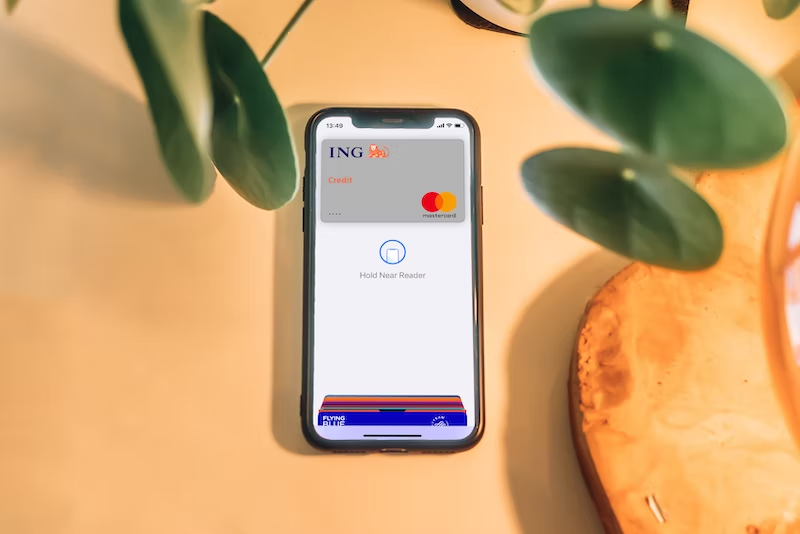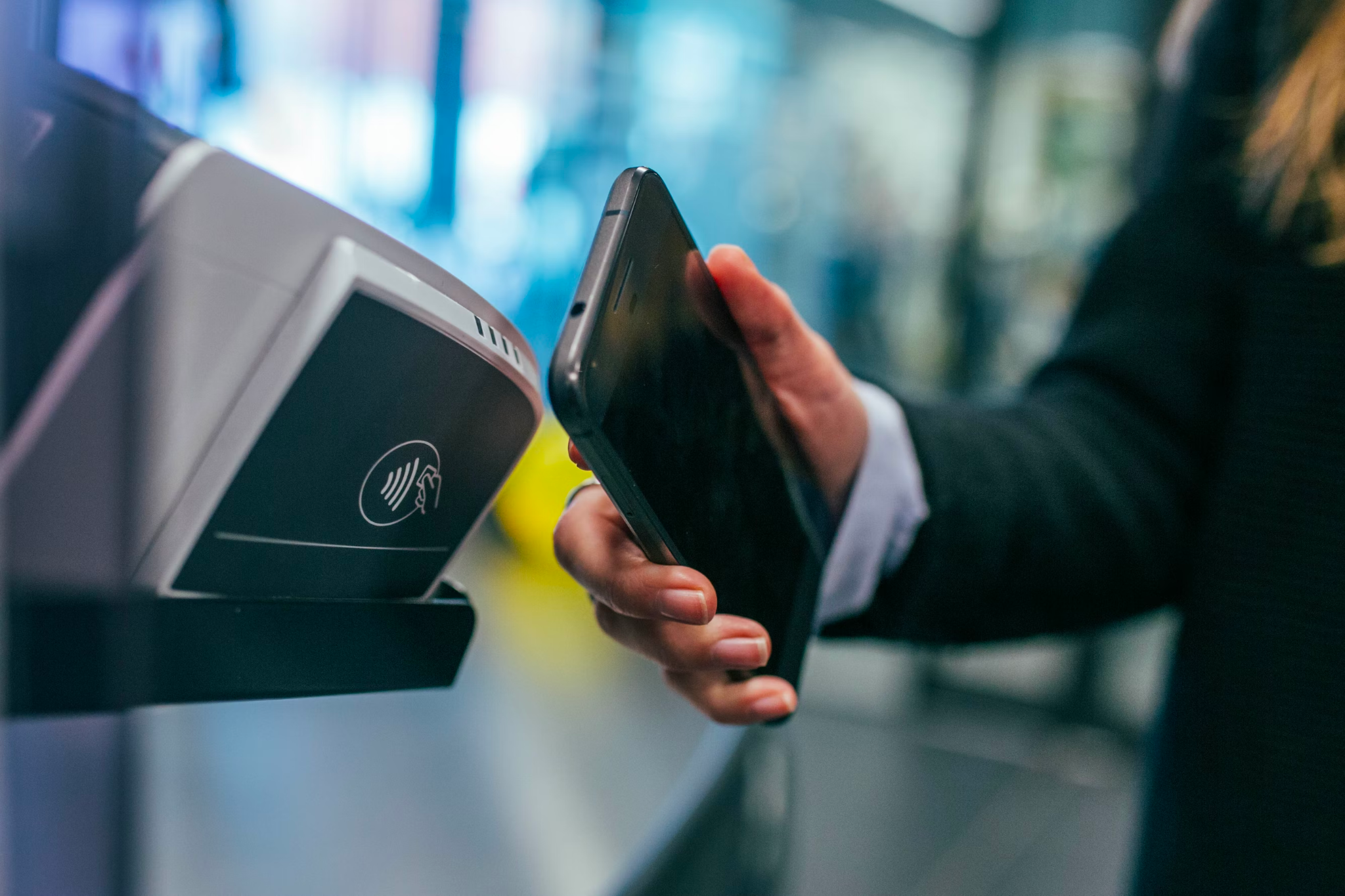7 Ways your B2B Business can Benefit from using Virtual Cards
Technology is progressing at a rapid pace, with the payment industry evolving exponentially at present.
In fact, by 2030, the global B2B payment transaction market is expected to reach approximately US$ 70 billion. To put this into perspective, it was valued at US$ 868.02 million in 2020.

The introduction of virtual cards is one way that the B2B payment market is progressing. This has meant that people can pay quickly and securely.
For B2B businesses, embracing these types of cards can offer several different benefits, many of which you may not have considered yet. So, let’s take a look…
What is a virtual card?
A virtual card is a temporary credit card number that you use while shopping online or in stores. These disposable card numbers will protect your actual account number from falling into the wrong person’s hands.
Virtual cards can make sure your business does not have its credit card data stolen. Unsecure connections and opportunistic hackers can cause mayhem for businesses of all sizes, so it is critical to take steps to protect your business, with virtual cards being an obvious part of the remedy.
Corporate credit card companies are offering virtual cards for B2B businesses
A lot of credit card companies offer virtual credit cards as part of their service.
In many cases, you may not even have to pay an extra dime for the virtual card if you already have an existing credit card. And if you take the time to explore zero fee credit cards for your business, you it’s an added perk to not having to worry about annual fees. That solidifies the need to pick your business credit card wisely.
If you get a corporate credit card with Juni, you can then assign virtual cards to your employees, ensuring they receive a precise sum so that you can control your spending better.

What are the benefits of virtual cards for B2B businesses?
Now that you have a better understanding of what virtual cards and digital wallets for banks are, let’s explore the benefits of them for B2B businesses in further detail.
A) A safe and secure method of payment
One of the main reasons why so many B2B businesses are turning to virtual cards is because they are more secure.
In 2020, unauthorised financial fraud losses across cheques, remote banking, and payment cards totalled £738.8 million in the UK.
Many businesses are targets of victim fraud, with the most targeted methods being wires, debit cards, credit cards, and cheques.
With card sharing in business being a common practice, there are extremely high risks for businesses, including data breaches, loss, and theft.
Without a virtual card, someone could attempt a fraudulent purchase if they have access to a corporate card. Recovering the stolen funds is a slim possibility, and such losses can often go unnoticed for a long period.
Virtual cards are resistant to fraud
Virtual payment cards are not directly linked to your main business bank account. Instead, they are linked to a wallet. This means that your bank account information is not at risk.
You can also add a further safety layer by storing these cards in your digital wallet.
A process known as tokenization is used when operating a virtual card. This substitutes your sensitive data.
You also have the option of setting card limits or expiration dates for certain transactions, which is another great way of protecting your funds.
If that was not enough, virtual cards can quickly and easily be switched off, changed, or re-issued.
B) Convenient and easy access to business funds
You can use virtual cards whenever your team needs to make a business purchase outside of traditional supplier invoice payments.
Virtual cards can be issued in one click and track transactions, and you can add a spending policy for each card, meaning you do not have to worry about overspending.
You can also eliminate petty cash by using virtual cards. More and more businesses are moving to cashless operations, as it enables them to empower employees, run more efficiently, and benefit from enhanced spending visibility.
C) Improve your cash flow
You can expect more accurate data in terms of business cash flow. This is vital when you consider that 62 per cent of small businesses have encountered at least one cash flow problem throughout their existence.
Poor cash flow can damage your business in a number of ways, including:
- Unpaid staff wages
- The inability to purchase new inventory
- Unpaid or late debt repayments
- Inability to pay suppliers
-Loss of contracts
With the use of a virtual card, you will be able to get instant clarity regarding your account status and track your business expenditure. This makes it a lot easier to manage funds, especially as you can set limits to make sure your employees do not spend more than intended.
D) Use business analytics to improve your performance
Another benefit of using a virtual card is that you can dig deeper into business analytics so you can get a better understanding of your financial performance.
Every virtual card transaction you make gives you significant data for analysis. CFOs and finance teams may be able to calculate important financial metrics, such as ROI and beyond.
For instance, you can identify markets where you are most likely to clinch a successful sale.
Your sales team may also be able to delve into this data to find out the most lucrative demographics, sectors, and regions so that they can focus their efforts appropriately. This will ensure everyone on your team is working toward lowering expenses and boosting profits.
The vast majority of virtual cards on the market today can be integrated with commonly used accounting software too, such as Quickbooks or Xero, for easy reconciliation and payables.
E) Reduce unnecessary purchases
There is nothing more frustrating than seeing that you have ordered more inventory than necessary or paid for a subscription you no longer need.
The expenditure limits imposed on virtual cards can be adjusted in real-time. With single-use virtual cards, they can only be used once, so you can make sure that your employee only uses the card for its intended purchase.
If you use a multi-use card, it will only take a few clicks for you to input a limit. You can specify how many times the card is allowed to be used or how much can be spent. This gives you full control and ensures unnecessary purchases are not made.
You can even restrict virtual cards based on value, time of day, merchant category, or merchant.
Virtual cards make it possible for you to have full control over your business’s spending. This means that you can have peace of mind in knowing that when you input a budget, you can ensure everyone stays within it. You’re not simply relying on your employees to heed your instructions.
F) Streamline payments
One great benefit of using a virtual card is that you will be in a position to pay suppliers promptly. No onboarding process is required, and these cards are widely accepted.
When you use a procurement system to file an invoice, paper checks must be cut and mailed. They then need to be physically received and finally deposited. This takes a long time, and delays are common, which can frustrate your suppliers.
Many large organizations have transformed their payment processes through enterprise procurement solutions that integrate virtual card capabilities with comprehensive spending controls and automated reconciliation.
Blocked payments can cause issues in terms of the flow of your admin process. Plus, your relationship with suppliers can suffer, which can harm your B2B brand’s reputation. If you want to avoid this problem, try invoicing software that automates all invoicing processes and ensures that your customers pay on time.
G) Improve vendor relationships
This leads on from the former point about being able to streamline payments and pay on time. This improves your relationship with your suppliers dramatically.
There are other benefits in terms of vendor relationships as well. You will be able to keep track of all supplier payments and subscriptions. If you need to upgrade or downgrade accounts, you can do this efficiently, without having to pester vendors for a refund because you forgot to cancel on time.
You will also have better control over your spending and increased visibility so that you can make more intelligent purchasing decisions. You will know which items are proving to be profitable and where you need to make more savings. All of this will help you to run your business efficiently and smoothly, reducing the number of potential vendor issues.
Experience the benefits of virtual cards
From streamlining your business to boosting accountability, the benefits of business cards are there for everyone to see.
With technology progressing all of the time, if you do not embrace these modern payment methods, your business is only going to get left behind.
The use of virtual cards makes it much easier for you to control spending and make intelligent business decisions when it comes to future purchases. At the same time, you can have peace of mind knowing that you have taken steps to protect your financial data and reduce the chances of a breach.



